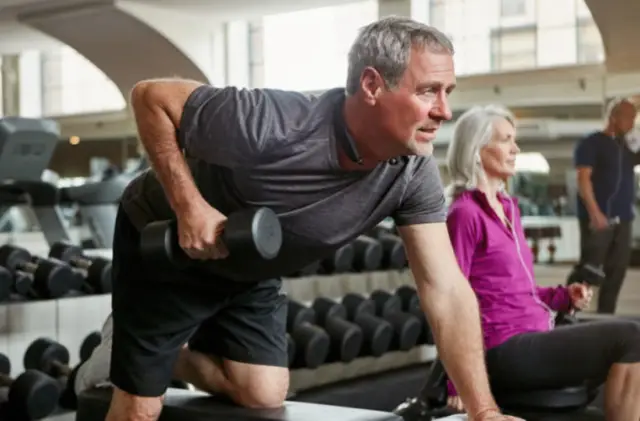“Physical activity is essential for health and well-being. It can help add years to life and life to years”, are the words of WHO Director General, Dr. Tedros Adhanom Ghebreyesus. “Every move counts, especially now that we manage the limitations of the Covid-19 pandemic. We all need to move every day, safely and creatively”. It is a simple, easy message, which we must take like a prescription from the doctor, in an almost obligatory way.
Doing some physical activity, no matter what it is, is better than doing nothing. You can start small and slowly and increase your frequency, intensity and duration over time. You can strengthen your muscles at home or in the gym. Physical activity is good for our heart, body and mind, and it will help us better deal with the coronavirus.
How much sport do children and teenagers need?

Children and teenagers, up to 17 years old, need at least 60 minutes of moderate to very active exercise each day. Activities should be primarily aerobic, such as jogging or bicycling. Activities that strengthen muscles and bones are also necessary.
Physical exercise for adults up to 64
For adults up to 64 years old, the WHO recommends engaging in at least 150 to 300 minutes of moderate aerobic activity, or a minimum of 75 to 150 minutes of active aerobic exercise; a fact that should be taken weekly. This activity can reduce the risk of premature death, heart disease, hypertension, cancer, and type-2 diabetes.
Physical exercise for people over 65

Older adults, over 65 years old, should get at least 150 to 300 minutes of moderate-intensity exercise or 75 to 150 minutes of vigorous aerobic exercise during the week. As much as possible, but they should prioritize balance and strength training a few days a week. These can help prevent falls and related injuries, as well as the deterioration of bone health and its capacity to regenerate.

For those who have experienced shifts in consciousness and know that more peace, joy, and love awaits in a better living environment. A bold shared vision. A living community and hub for innovation. A sustainable ecosystem for living and working. A model for the new future.
